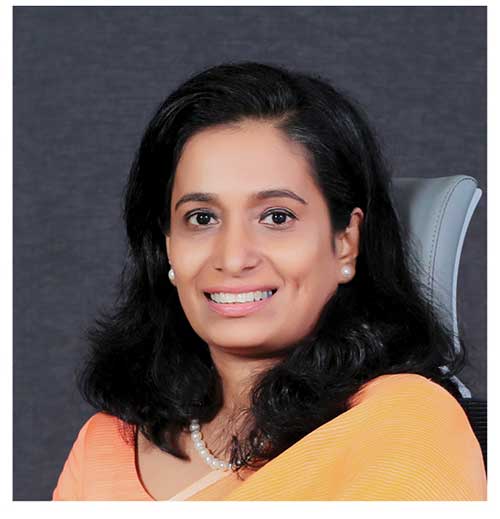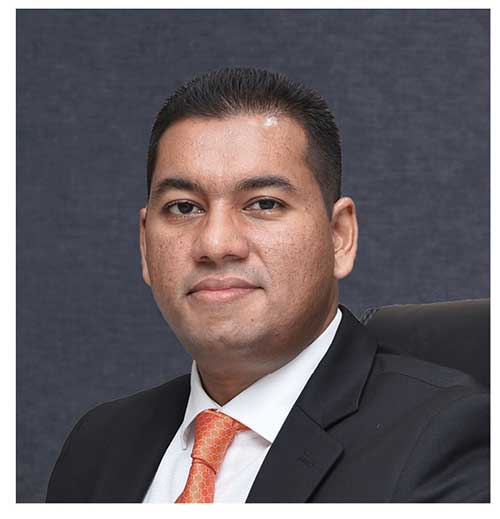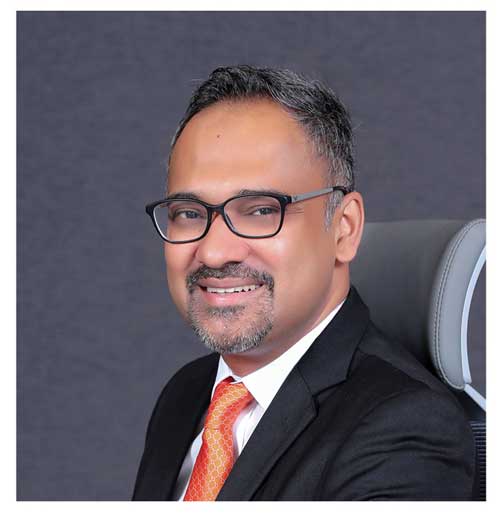UNION ASSURANCE
Chief Financial Officer
Assistant Vice President
Risk and Compliance
Chief Information Officer
Q: Union Assurance has been ranked No. 25 among the top 125 listed companies in Sri Lanka while also being ranked first in the life insurance sector in the latest Transparency in Corporate Reporting Assessment by Transparency International Sri Lanka (TISL). What are the overall strategies taken by the company to achieve this accomplishment?
Asha Perera (AP): We feel proud to be honoured by TISL consecutively. As a company and group, we always believe in walking the talk and getting our governing structure right.
Our governing structure is strategically aligned to take the business forward the right way, not merely for compliance. This philosophy makes it easier to meet our reporting requirements too. On our journey, we continue to challenge ourselves and improve our governance structure.
While the company operates with a structured checks and balance process through board level management committees, these committees and processes are further strengthened every year to enhance governance and business alignment.
Q: In your opinion, how are Sri Lanka’s corporates faring in terms of transparent corporate reporting, and what is the importance of organisations integrating more transparency and accountability into their reporting processes? What are the company’s views on this?
AP: Many public quoted companies are maintaining transparent reporting. I believe that this is a win-win for both the organisation and its stakeholders.
With technology today, all stakeholders have information at the tip of their fingers and most make data driven decisions. Against this backdrop, transparent corporate reporting becomes pivotal.
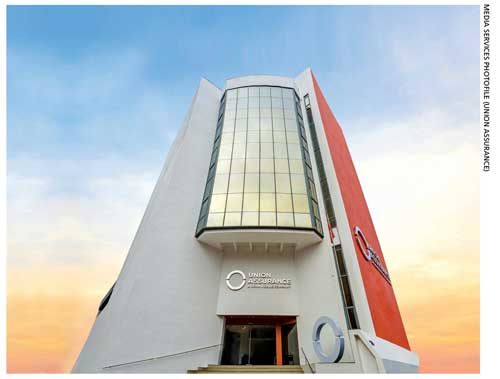
Q: What measures were taken by the company to garner everyone’s support for adapting good governance practices? Were any challenges faced?
Rehan Ismail (RI): Our governance tone is set from the top as our leadership is focussed on inculcating strong good governance practices. As a subsidiary of John Keells Holdings, we are held to the highest standards of governance.
Furthermore, we have a clearly defined set of policies and processes in relation to governance – anti-fraud, whistleblower and anti-corruption.
Our code of conduct also plays a critical role in guiding, assisting and protecting us as employees, our businesses and brands, and our stakeholders by ensuring that we always ‘do the right thing.’
The challenge is to ensure that all stakeholder interests are satisfied and well-managed during challenging times.
Q: And what are the most significant challenges that Sri Lanka must overcome in its quest to reduce corruption? What is the role of the private sector in this quest? Moreover, what measures are being taken by your company in this regard?
RI: The recent Anti-corruption Act is a good move by the government, and empowers the regulatory authority to investigate bribery and corruption. However, we need to do a lot more as a country to enforce and implement anti-corruption regulations.
We need state support and public empowerment to raise citizen voices against corruption. This conduct and ethics should be included in primary education to change the mindset.
The private sector is the main engine of economic growth, and the sector should realise that mitigating corruption will offer larger benefits to society and the nation.
We should have networks and forums to discuss and debate corruption. Transparency and anti-corruption should be ingrained in the private sector.
Union Assurance’s comprehensive code of conduct, coupled with zero tolerance for offences irrespective of employee status, is our true north.
The whistleblower policy encourages employees to raise concerns and has enabled multiple channels to raise concerns.
Regular compliance reporting to audit committees and enhancing transparency in reporting are other checks and balances.
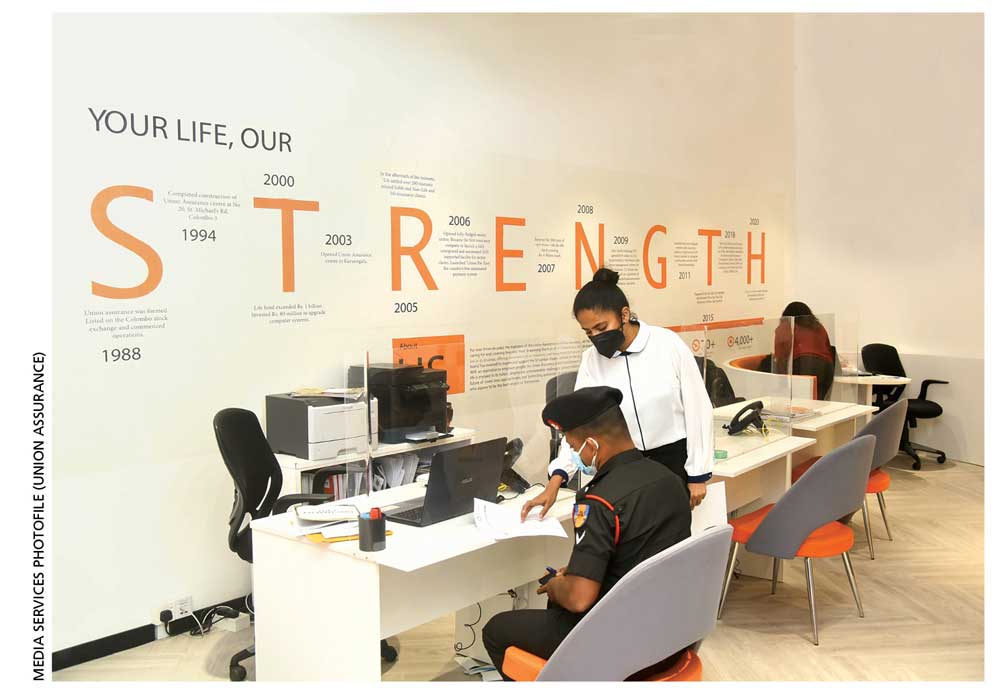
Q: Could you cite a few examples of best practices in your organisation when it comes to policies that promote gender equality and non-discrimination?
Harsha Senanayake: Union Assurance is an equal opportunity employer, and remains committed to maintaining workplaces that are free from discrimination based on race, religion, gender, age, nationality, social origin, being differently abled, sexual orientation, gender identity, political affiliation and opinion.
Accordingly, Union Assurance is committed to hiring, developing and promoting individuals who best meet the requirements of available positions; possess the required competencies, experience and qualifications to carry out assigned tasks; and have growth potential.
The company has implemented key policies to support this including its gender policy – which aims to achieve a culture of gender balance and foster gender parity – as well as its equal opportunity and non-discrimination policy, and anti-sexual harassment policy.
Union Assurance has achieved its gender parity goal with a female workforce of 51 percent.
Some of the key interventions include addressing unconscious bias by sensitising employees, levelling the meritocracy playing field by addressing company and industry culture, introducing 100 days of equal parental leave (a first in Sri Lanka), women-centric training including mentoring and sponsorship programmes, employer supported childcare and initiating the SanNap initiative.
Additionally, for International Women’s Day this year, Union Assurance launched Grow, a programme to develop women leadership in both traditional and nontraditional roles.
This groundbreaking programme, embodying growth, recognition, opportunities and wellbeing, aims to support women through holistic development.
Telephone: 2990990 | Hotline (24/7): 1330 | Email: info@unionassurance.com |
Website: www.unionassurance.com


